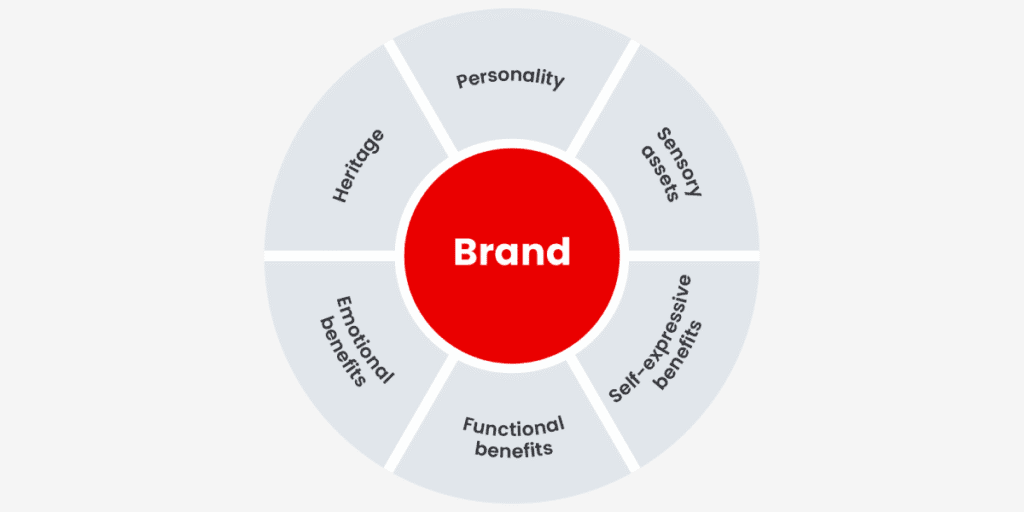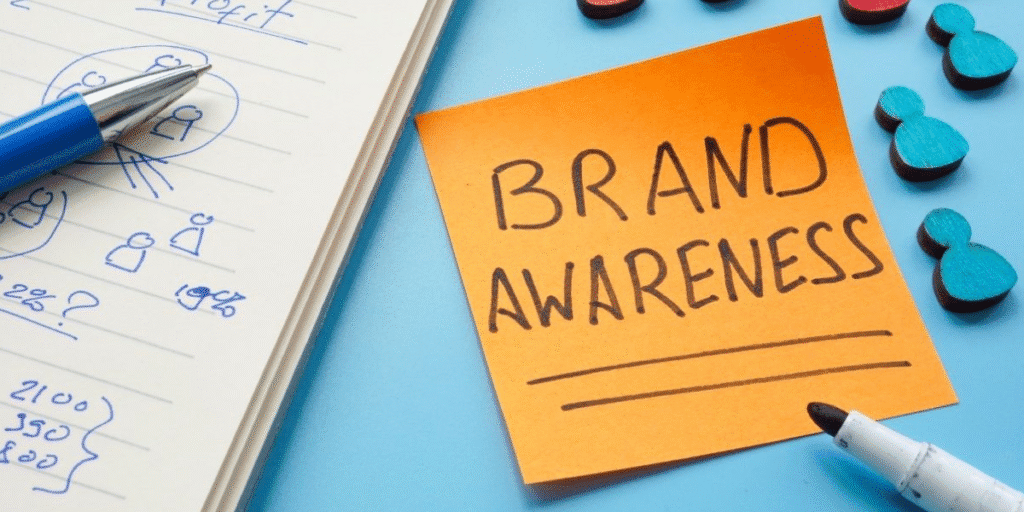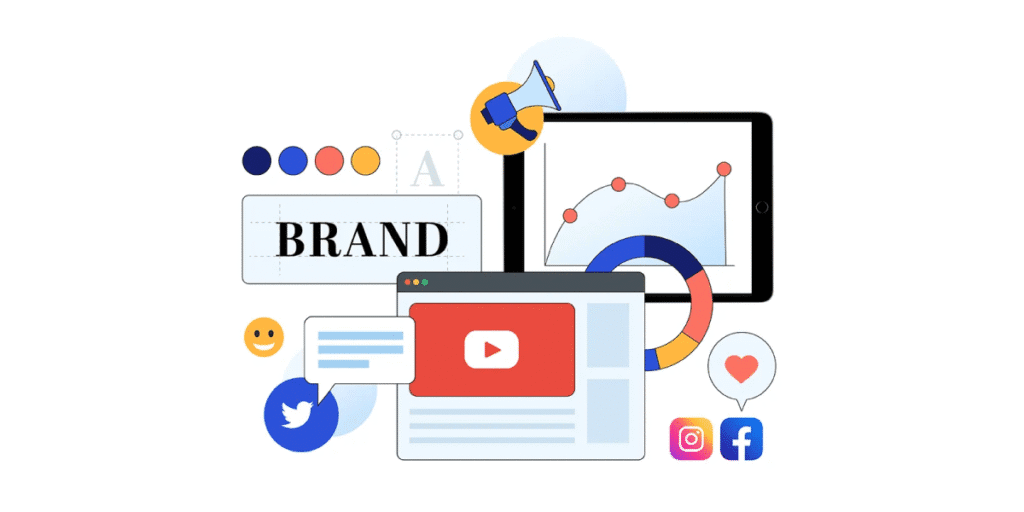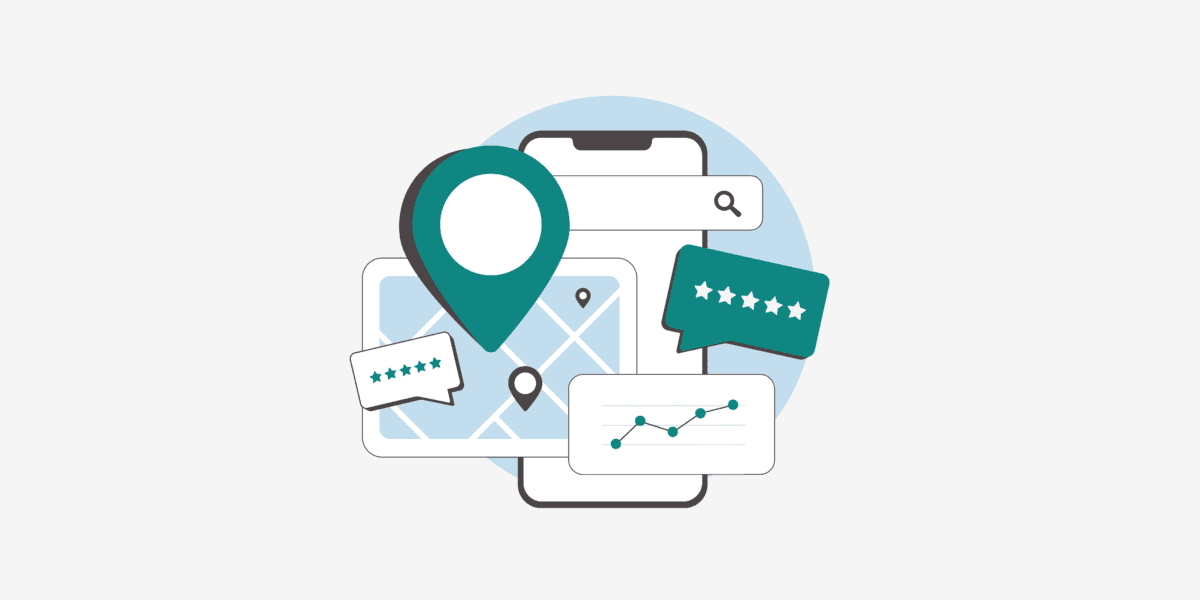You know, in today’s crowded market, people often forget brands they see every day. That’s why learning how to build brand awareness is so important. It’s all about making people recognise, remember, and trust your brand. When done right, it helps your business stand out, attract loyal customers, and even boost revenue.
Think of it like this: the stronger your brand presence, the more likely people will choose you over others. In the UK, brands with a clear, consistent identity can increase revenue by up to 33 percent.
That’s why, in this guide, we’ll show you simple, practical ways of creating brand awareness, with examples, tips, and tricks you can start using today.
| Key Takeaways: Building brand awareness means making people recognise, remember, and trust your brand. A strong brand identity with a logo, colours, and consistent voice helps you stand out. Using social media, content marketing, SEO, and influencer partnerships spreads your brand to the right audience. Referral programs, contests, and giveaways encourage people to talk about your brand. Engaging with your community and giving back builds trust and loyalty. Measuring results and improving your strategy keeps your brand growing stronger every day. |
What are the Steps on How to Build Brand Awareness?

So, how do you increase brand awareness? Here’s the detailed process for you.
1. Develop a Strong Brand Foundation
Before you promote your brand, you need a solid foundation. This includes your brand identity, values, and understanding of your audience.
Define Your Identity:
Create a clear logo, memorable tagline, and a consistent tone of voice. Your brand should feel the same across every platform. For example, Innocent Smoothies uses a playful, friendly tone that matches their colourful packaging.
Understand Your Audience:
Research who your customers are, what they care about, and where they spend time online. In 2025, most Millennials and Gen Z women spend around 2 to 3 hours daily on social media, staying very active online. Tailor your message to their habits to reach them effectively.
2. Create Valuable Content
Content marketing is one of the most effective ways to increase brand awareness.
Blog Posts and Articles:
Write helpful guides that solve problems for your audience. For example, a skincare brand could write a blog on “Top 5 Summer Skincare Tips for Sensitive Skin.”
Infographics:
People love visual content. Infographics simplify complex information and get shared widely. Include your logo so your brand spreads naturally.
Podcasts and Videos:
Share stories or interviews with experts. Podcasts build authority and trust. Brands like Shopify and Buffer run industry podcasts to educate and engage their audience.
SEO Optimisation:
Optimise all content for Google search. This helps people find your brand when they search for products or services you offer.
Interactive Content:
Quizzes, contests, and webinars increase engagement. For example, a fashion brand could run a quiz: “Which Summer Dress Matches Your Personality?”
3. Use Social Media Smartly
Social media is one other powerful tool for brand awareness in the UK.
Choose the Right Platforms:
Focus on platforms where your audience is active. Instagram, TikTok, and Facebook are great for B2C, while LinkedIn works for B2B.
Post Regularly:
Consistency builds trust. Use your brand voice and style in every post.
Run Contests and Giveaways:
People share content when there’s a reward. This spreads your brand organically.
Influencer Marketing:
Partner with influencers who match your brand values. Even micro-influencers can be effective for niche markets. For example, 63% of consumers aged 18–34 have purchased a product because an influencer recommended it.
4. Collaborate and Partner
Partnerships can introduce your brand to new audiences.
Local Partnerships:
Work with nearby businesses for events or joint campaigns. For instance, a coffee shop partnering with a local bakery can attract both sets of customers.
Sponsorships:
Sponsor events, sports teams, or community projects. O2 in the UK increased customer loyalty and new activations through strategic sponsorship of entertainment venues.
Guest Content:
Write guest posts or appear on other blogs, podcasts, or webinars. This positions your brand as an expert and reaches a wider audience.
5. Offline Marketing Still Works
Even in a digital world, offline marketing matters.
Branded Merchandise:
Give away items like pens, mugs, or T-shirts with your logo. People see your brand every time they use it.
Car Wraps:
Brand your vehicles with eye-catching designs. Every drive becomes a moving billboard.
Events and Exhibitions:
Attend trade shows, festivals, or pop-up events to meet your audience face-to-face.
Billboards and Posters:
Place them in areas your target audience frequents. Include QR codes to track engagement.
6. Run Referral Programs
Referral programs are a simple and cost-effective way to grow brand awareness. For example, Dropbox grew 3,900% by offering extra storage for every friend referred.
Tip:
Offer small incentives, such as freebies or discounts, to encourage sharing. People trust recommendations from friends and family more than ads.
7. Use Advertising Strategically
Paid advertising can quickly boost brand recognition.
PPC Campaigns:
Target keywords relevant to your brand. Even if people don’t click, seeing your name repeatedly increases awareness.
Social Media Ads:
Platforms such as Facebook and Instagram allow hyper-targeted ads. You can reach people based on interests, location, and behaviour.
Remarketing:
Show ads to people who visited your site but didn’t make a purchase. This reminds them of your brand.
8. Turn Employees into Brand Ambassadors
Employees can amplify your brand message naturally. For instance, Zappos empowers employees to interact with customers and post stories, increasing engagement and brand loyalty.
Tip:
Encourage staff to share company content on LinkedIn or Instagram. Authentic posts are more likely to be trusted and shared.
9. Be Memorable and Stand Out
Strong brand awareness comes from being different.
Unique Brand Personality:
Inject humour, creativity, or emotion into your campaigns. Dollar Shave Club and Old Spice are examples of brands that went viral with unique voices.
Pro Storytelling:
Tell stories that connect emotionally with your audience. Stories stick longer than facts.
Controversy (Optional):
Taking a bold stance on an industry issue can generate attention, but use it carefully to avoid backlash.
10. Measure Your Brand Awareness
You can’t improve what you don’t measure.
Metrics to Track:
- Unprompted brand awareness: Can people recall your brand without help?
- Prompted brand awareness: Can people recognise your brand when prompted?
- Website traffic and social engagement: Are more people visiting your site or engaging with your posts?
- Social listening: Are people talking about your brand online?
Tools:
Use brand tracking software, surveys, and analytics tools to monitor growth. In the UK, brands that track awareness can see ROI in increased sales and customer loyalty.
Why Brand Awareness Matters

Brand awareness is not just something extra; it really helps your business grow. When people know your brand, they buy from you more often. They also trust you more and even pay higher prices for your products.
A known brand is always chosen over an unknown one, which gives you a big edge over competitors. It also makes hiring easier because more people want to work for a brand they already know and like.
In simple words, building brand awareness adds real value and keeps your business strong for the long run.
| At FYX Marketing, a results-driven agency offering digital marketing services in Hamilton and beyond, we help businesses grow and get noticed with smart digital marketing. From SEO to social media, our strategies make your brand stand out. Book a free audit today and let us boost your leads, sales, and online success. |
Quick Tips to Boost Brand Awareness

Here are some instant tips on how to increase brand awareness.
- Keep your branding consistent everywhere.
- Stand for something beyond your products.
- Focus on omnichannel marketing – both online and offline.
- Use influencers and partnerships strategically.
- Encourage employee advocacy.
- Always measure results and adapt.
Wrapping Up
So, that’s all about how to build brand awareness. Building brand awareness is a mix of strategy, creativity, and consistency. From content marketing and social media to referrals, sponsorships, and storytelling, there are countless ways to make your brand known. Remember, people choose brands they recognise and trust. So start small, stay consistent, and watch your brand grow.
Once people know and trust your brand, the next step is turning them into customers. If you want simple tips on improving sales, check out our guide on how to boost your conversion rates in 2025.
FAQs
- How long does it take to build brand awareness?
Building brand awareness takes time; it does not happen overnight. For small businesses, it can take a few months to a year to see real results.
- Can small businesses build brand awareness without spending much?
Yes, absolutely. You can use free tools like social media, blogs, and word of mouth to spread your brand. Even simple things like engaging with customers online or running a referral program can grow awareness without big costs.
- Does offline marketing still help with brand awareness?
Yes, offline marketing still works very well. Things like local events, flyers, posters, or branded merchandise make people remember your name. Meeting customers face-to-face also builds stronger trust than online ads.
- What role does customer service play in brand awareness?
Customer service is a big part of brand awareness because happy customers talk about your brand. When people feel valued, they recommend your business to friends and family. This type of natural promotion spreads faster than paid ads.
- How do I know if my brand awareness efforts are working?
You can track things like website visitors, social media mentions, or customer surveys to see if people know your brand. If more people search for your brand name or talk about it online, you are on the right path. Always measure and adjust your efforts.


